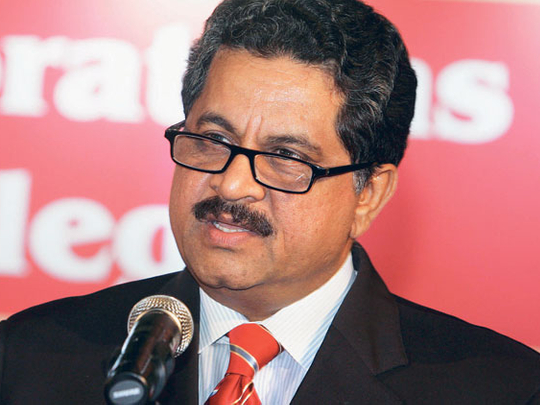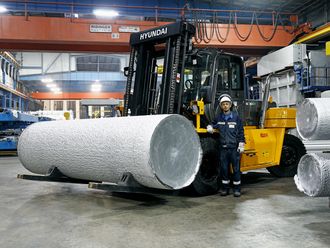
Dubai: Ajman-headquartered Thumbay Group, which runs Gulf Medical University, is launching a Dh350-million expansion project.
The proposals include the development of a fully-integrated university campus, health centres, laboratories, dormitory for 2,000 students, a convention centre and a health fitness club and spa, a top official said.
The new Gulf Medical University campus will be built on 25 acres of land. More than 2 million square feet of built-up area will be added including a 300-bed speciality hospital and a mosque.
All these will be ready by 2012 as part of the first-phase expansion being financed by a number of local lenders, including Dubai Islamic Bank and Abu Dhabi Islamic Bank.
His Highness Shaikh Humaid Bin Rashid Al Nuaimi, Member of the Supreme Council and Ruler of Ajman, last week unveiled the plan for the proposed hospital along with the new brand identity of Gulf Medical University and GMC Hospital.
Consistent growth
The first phase of expansion is expected to be followed by a second wave that will see the group expand its footprint into GCC and Africa with three medical university campuses in five years and 15 hospitals in seven years.
"The current phase of the expansion will be completed in 18 months, that will have a housing facility for 2,000 people including staff, students and faculty," Thumbay Moideen, president of Thumbay Group, told Gulf News.
Due to the expansion, the group will need to hire about 800 people.
"We currently employ 1,200 professionals. When the expansion completes, we will have 2,000 people on payroll," Moideen said.
Gulf Medical University — the UAE's first medical university catering to national and expatriate students — began as a medical college about a decade ago at a small shopping complex near Ajman Industrial Area. It currently fulfils the growing needs of health- care professionals and facilities in the country. The UAE's health care institutions are heavily dependent on foreign health-care professionals.
"The GCC education industry is poised for unparalleled and consistent growth propelled by increased private sector participation, rising education needs in the region as well as government initiatives to improve the education system, says Sanjay Vig, managing director at Alpen Capital.
Despite having some large hospitals and health- care centres, conscious efforts have not been made in the UAE to set up medical colleges or universities to groom doctors or medical professionals. As a result, the sector is heavily dependent on foreigners.
"Despite initiatives taken by the governments in the GCC, there exist significant challenges in the sector. The prime challenge is to capitalise on high investments and translate them into required outputs. The GCC countries still lag in absorbing high-skilled labour, thus disincentivising the education attainment levels," said a recent report by Alpen Capital. The total number of students in the GCC is expected to grow at a compound annual growth rate (CAGR) of 1.8 per cent from 2010 to 2020 to 11.3 million in 2020 from 9.5 million in 2010.
The number of tertiary students is expected to grow at the highest CAGR of 5.5 per cent. The share of tertiary education students is expected to rise from 11 per cent in 2010 to 15 per cent in 2020, while primary education's share would decline from 46 per cent to 43 per cent during the same period. Private enrolment's share is also estimated to rise from 16 per cent in 2010 to 19 per cent in 2020 in the primary and secondary education segment.












